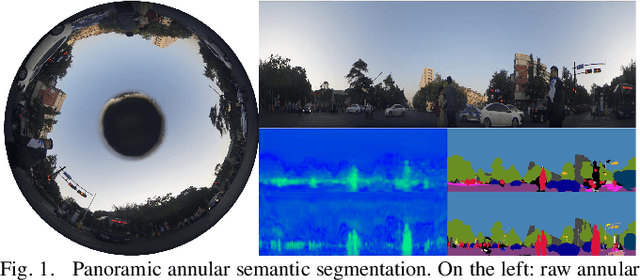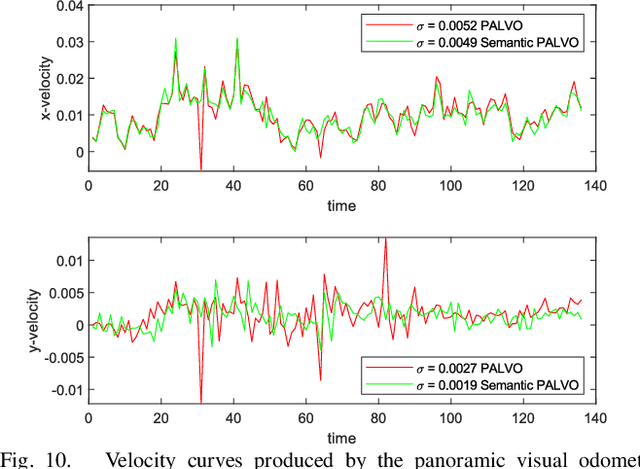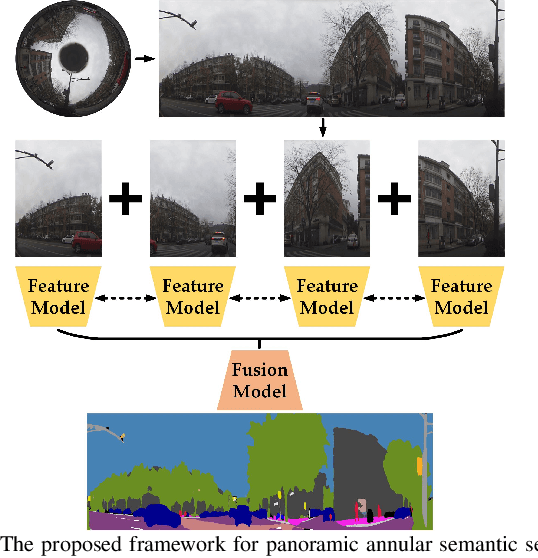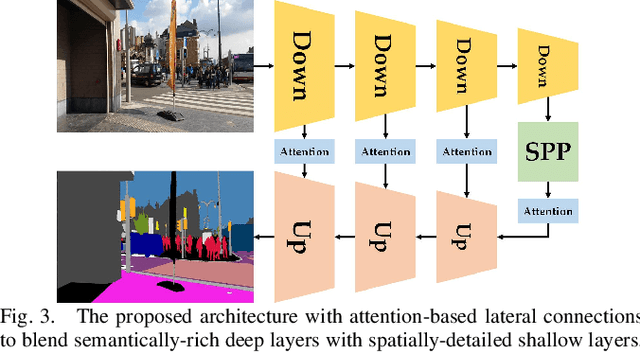DS-PASS: Detail-Sensitive Panoramic Annular Semantic Segmentation through SwaftNet for Surrounding Sensing
Paper and Code
Sep 17, 2019



Semantically interpreting the traffic scene is crucial for autonomous transportation and robotics. However, state-of-the-art semantic segmentation pipelines are dominantly designed to work with pinhole cameras and train with narrow Field-of-View (FoV) images. In this sense, the perception capacity is severely limited to offer higher-level of confidence for upstream navigation tasks. In this paper, we propose a network adaptation framework to achieve Panoramic Annular Semantic Segmentation (PASS), which allows to re-use conventional pinhole-view image datasets, enabling modern segmentation networks to comfortably adapt to panoramic images. Specifically, we adapt our proposed SwaftNet to enhance the sensitivity to details by implementing attention-based lateral connections between the detail-critical encoder layers and the context-critical decoder layers. We benchmark the performance of efficient segmenters on panoramic segmentation with our extended PASS dataset, demonstrating that the proposed real-time SwaftNet outperforms state-of-the-art efficient networks. Furthermore, we assess real-world performance when deploying the Detail-Sensitive PASS (DS-PASS) system on a mobile robot and an instrumented vehicle, as well as the benefit of panoramic semantics for visual odometry, showing the robustness and potential to support diverse navigational applications.
 Add to Chrome
Add to Chrome Add to Firefox
Add to Firefox Add to Edge
Add to Edge